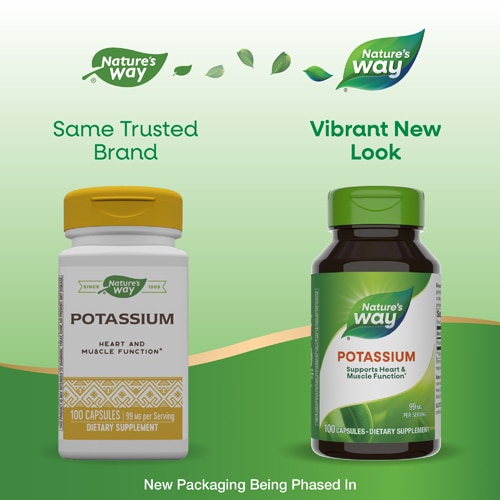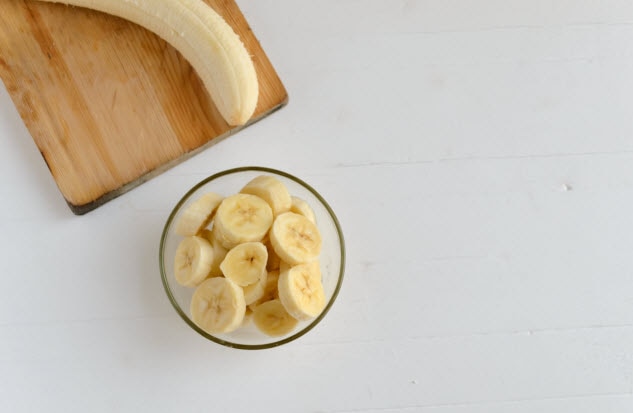Think of the nutrients your body needs and chances are potassium falls far beneath the likes of magnesium and vitamin D—if potassium makes the list at all. But while it may not get as much ink as, say, probiotics and vitamin C, your body touts its benefits constantly: As the third most abundant mineral in your body, potassium plays an essential role in everything from the transportation of nutrients to the communication between nerves and muscles. Here’s the lowdown on this mighty mineral—and why it should be a priority.
What are some potassium health benefits?
When potassium does arise in conversation, it’s likely in conjunction with electrolytes. For good cause, too: In addition to acting as a carrier of nutrients and a liaison between nerves and muscles, potassium is crucial to maintaining your body’s fluid and electrolyte balance. (What are electrolytes exactly, you ask? They’re salts that are in charge of moderating the flow of water in and out of your body; they also prompt nerve impulses and are thus intricately tied to your pulse, your lungs—even your ability to think.)
Due to the significance potassium has in regards to your body’s balance—and its proper functioning—it ought to arrive as no surprise that it helps control blood pressure by lessening the impact of sodium in your diet. (As the American Heart Association puts it, “The more potassium you eat, the more sodium you lose through urine.”)
What’s more, potassium naturally supports bone health by diminishing calcium loss through urine; it also organically safeguards against muscle cramps. And for those who are worried about the texture and appearance of their skin? Potassium may minimize the build-up of cellulite through the effect it has on fluid retention.†
How much potassium per day do I need?
The National Institutes of Health proclaims that adults—both male and female—need 4,700 mg of potassium per day. (Breastfeeding moms need 5,100 mg.) The NIH also estimates that your body absorbs 85-90% of dietary potassium through a wide range of foods and beverages.
What are the signs that I’m not getting enough?
If your potassium levels are inadequate, you may be at risk for mild to severe hypokalemia. The symptoms of this can range from fatigue and muscle cramps to weakness and constipation. Moderate to severe hypokalemia, which may present in vomiting, abnormal heart rhythm and overall cardiac function, strikes about 21 percent of hospitalized patients.
While it can be life-threatening, the National Institutes of Health reports that it’s “rarely due to low potassium intake alone” and is oftentimes in association with medication, excessive sweating, the overconsumption of alcohol, laxative abuse and illnesses such as diarrhea or vomiting. This is also precisely why physicians often prescribe children Pedialyte after a bout of the flu—and why professional athletes are often seen carting around Gatorade.
What potassium foods should I reach for?
Unless you’re an athlete, ensuring sufficient potassium intake does not require Gatorade (or any other type of sugary sports drink). Indeed, the NIH shows that most of the foods and drinks we regularly consume—from milk, coffee, and tea to fish, yogurt and nuts—contain potassium.
And yet, the same source also reports that most people only get approximately half of the potassium they need on a daily basis—a concern that led them to define potassium as a "nutrient of public concern" in their 2015-2020 Dietary Guidelines for Americans. As such, you may want to actively seek out richer sources.
To do so, look beyond the banana to the salad bar instead. Avocados are one of the best sources of potassium, with 1,067 mg (or 30% of your DV). Other leading contenders include spinach, sweet potatoes, acorn squash, white beans, wild-caught salmon, dried apricots, mushrooms, peas and potatoes.
Is it possible to have too much potassium?
Yes—but typically only for those who have a kidney disorder. The American Heart Association says that such disorders may render the kidneys “less able to remove potassium from your blood” and “too much potassium may build up.” This is known as hyperkalemia and may emerge in a low, weak, or irregular pulse, stomach upset and/or fainting.
Should I take a potassium supplement?
Harvard Health believes, and many physicians would agree, that “you’re much better off getting potassium from foods” and should only take a supplement if it’s prescribed by a health care professional. If it is, consider Vitacost's Potassium Citrate, which encourages a healthy acid/alkaline balance. Because what’s synonymous with balance? Harmony.
†These statements have not been approved by the Food and Drug Administration. These products are not intended to diagnose, treat, cure or prevent disease.




